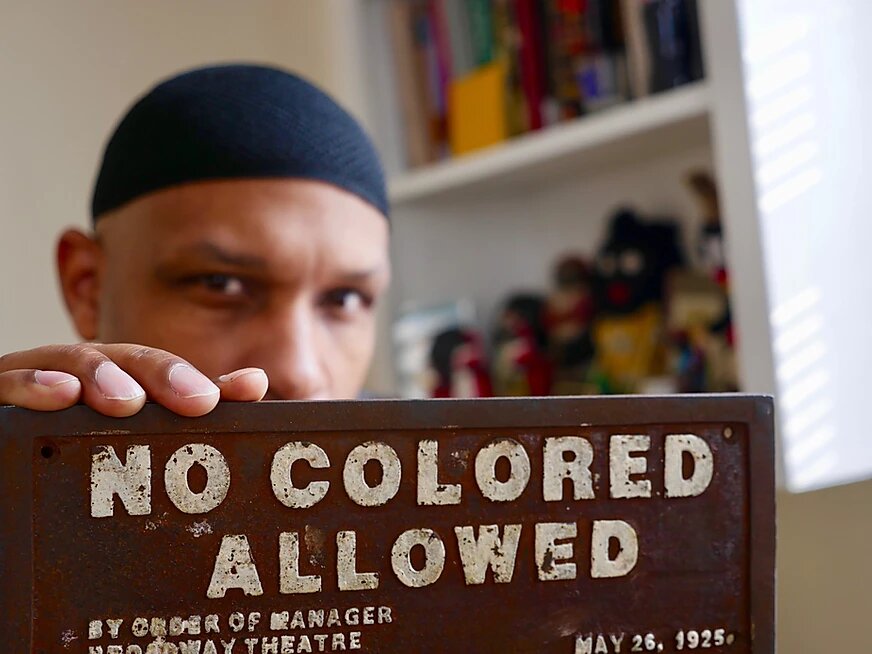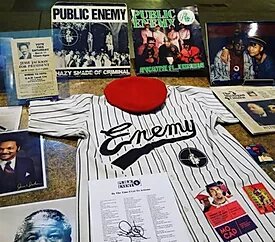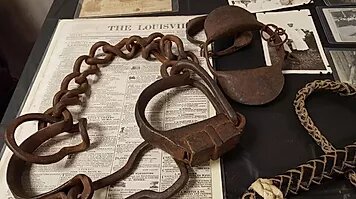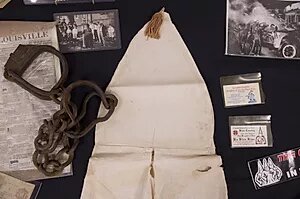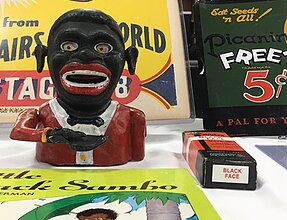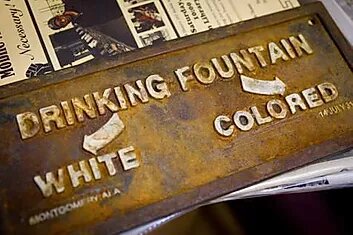On Feb. 17 and 18 at Building 14, the Black History 101 Mobile Museum comes to Sinclair as part of the college’s observance of Black History Month.
The museum was founded by Dr. Khalid el-Hakim, a former middle school social studies teacher from Detroit who amassed a collection of over 7,000 original artifacts of Black memorabilia dating from the trans-Atlantic slave trade era to hip-hop culture to display across the U.S.
However, the exhibit had humble beginnings in the mid-1990s, when el-Hakim was a recent college graduate with a small assortment of artifacts shared only with family and friends.
El-Hakim started the collection following his involvement in the Million Man March, an event in 1995 when an estimated 400,000 to 2 million black men marched in the National Mall in Washington D.C. The demonstration was a promotion of black unity and family values that set out to win politicians’ attention for urban and minority issues.
“On that day, we took a pledge to be more responsible men and stewards of change in our communities,” el-Hakim said in an interview with The Renewal Project, a site that tells the tales of citizens that solve problems in their communities. “…upon my return from the march, I was inspired to share my collection with the public as a tangible contribution to the pledge I made in Washington.
Inspired by the teachings of Dr. David Pilgrim, his sociology professor at Ferris State University, el-Hakim amassed his collection of artifacts, scouring flea markets, thrift stores, garage sales and antique shops and using these to give students tangible lessons in his lectures.
“As a first-year Social Studies teacher, I grappled with the reality that my students’ textbooks often glossed over, inadequately explained, or completely omitted Black history and culture,” he said to The Renewal Project. “In response, I began supplementing the content by bringing primary-source artifacts from my collection to engage and pique their interest in learning about the contributions of Black people in all aspects of American life in spite of the ugly history of slavery, black codes, Jim Crow, and institutional racism.”
El-Hakim continued to grow his collection and show it outside of the classroom, taking them to community meetings. As interest and invitations to present the artifacts increased, he left the classroom in 2011 to focus on running the Black History 101 Mobile Museum full time.
Related Articles
- 5 Underappreciated Black History Films (Female)
- The Progressive Bloc: The “Con” of Black Conservatism
The traveling exhibit serves as an educational tool that provides a safe space to have honest conversations about race and social justice while fostering a deeper appreciation for museums toward all that view it.
Some notable examples of the artifacts shown at the museum include a pair of slave shackles, an old drinking fountain sign that differentiates between “White” and “Colored,” documents signed by Malcolm X, a KKK hood, a rare slave bill of sale and vintage issues of Jet and Ebony magazine.
In its 25 year history, the museum has visited 40 states at over 500 different kinds of venues. A focus of the museum is bringing the experience to non-traditional places, as it has been hosted at colleges, K-12 schools, corporations, libraries, religious institutions and even living rooms.
In addition to documents and artifacts highlighting the plight of racism, slavery, Jim Crow, the civil rights movement and all of the figures involved in paving the way for black freedom, hip-hop music and culture are featured in the gallery.
“Listening to artists, including Public Enemy, Boogie Down Productions, Rakim, Poor Righteous Teachers and others raised my consciousness of the social and political realities of being Black in America,” el-Hakim said in an interview with Ebony.com. “Hip-hop culture allows us to be unapologetic about who we are. With hip-hop culture being so bold, disruptive and grassroots-based, I was able to carve out a niche for this project and challenge the way people viewed museums.”
El-Hakim has roots in the industry, having worked in hip-hop for over 20 years as a manager/booking agent for artists such as The Last Poets, Proof of D12, Jessica Care Moore and Professor Griff of Public Enemy.
In 2013, he published “The Center of the Movement: Collecting Hip Hop Memorabilia,” a novel detailing the importance of the genre and detailing the process of growing his collection. In it, he explains the significance behind certain items found at the museum.
El-Hakim’s future plans include opening the Michigan Hip-Hop Archive at the campus of Western Michigan University in 2020.
“The scripture teaches us that we are destroyed due to the lack of knowledge,” Professor Griff of Public Enemy said. “This is the right time to put the mobile museum in its historical and cultural place so we might save our future to ensure we are not destroyed.”
Henry Wolski
Staff Writer

